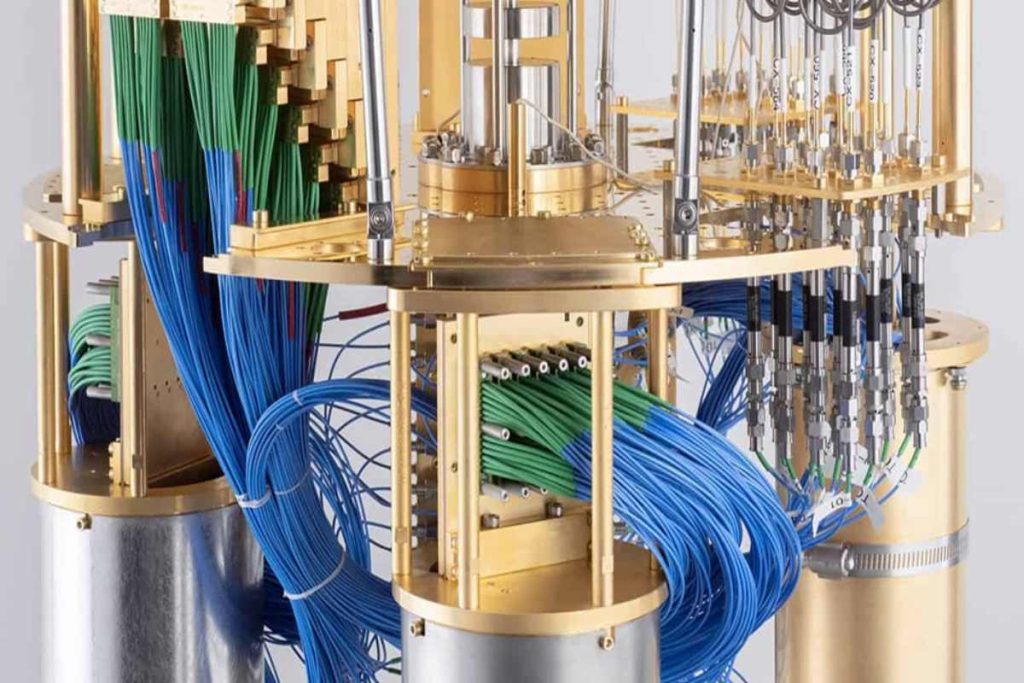In recent years, quantum computing has emerged as a cutting-edge technology with the potential to revolutionize various industries. One sector that stands to be significantly impacted is gaming. Quantum computing’s unparalleled computational power and capabilities open up a realm of possibilities for game developers and gamers alike.
Understanding Quantum Computing
What is Quantum Computing?
Quantum computing is a branch of computing that leverages the principles of quantum mechanics to perform complex calculations at speeds exponentially faster than classical computers. Unlike classical bits, which represent either a 0 or a 1, quantum bits or qubits can exist in multiple states simultaneously, thanks to the phenomenon known as superposition.
Moreover, quantum computers use entanglement, where the state of one qubit can instantly affect the state of another, enabling parallel processing on an unprecedented scale.
But let’s leave physics for another day and check what this actually means for gaming.
The Power of Quantum Parallelism
One of the most significant advantages of quantum computing is its ability to perform parallel computations efficiently. This capability will have a profound impact on gaming, where real-time rendering, physics simulations, and AI decision-making can benefit from quantum parallelism. As a result, game developers can create more immersive and dynamic virtual worlds without sacrificing performance.
Quantum Computing and Game Development
Faster Rendering and Realism
Quantum computing’s computing power can significantly enhance the rendering process in video games. With the ability to process complex graphics and lighting algorithms rapidly, quantum-powered systems can create hyper-realistic environments with stunning visual effects. This level of realism will transport gamers into more immersive and captivating virtual worlds.
Advanced Physics Simulations
Physics simulations play a crucial role in creating lifelike interactions within games. Quantum computing can accelerate these simulations, allowing for more accurate and intricate representations of object behavior, fluid dynamics, and collision detection. As a result, games will offer smoother and more realistic gameplay experiences. If you saw a trailer for GTA 6, that’s nothing compared to what quantum computing can do. It will be hard to tell the difference between virtual and reality once this becomes available.
Intelligent AI and NPCs
Artificial Intelligence (AI) is a cornerstone of modern gaming, providing lifelike behavior to non-playable characters (NPCs) and enhancing game challenges. Quantum computing’s processing speed will enable more sophisticated AI algorithms, making NPCs more responsive, adaptive, and human-like in their decision-making. This will lead to more engaging and unpredictable gameplay scenarios.
In other words, every gamer will experience the game differently with different quests and side missions.
Procedural Content Generation
Procedural content generation is a technique used to create vast, open worlds without the need for manual design. Quantum computing can generate complex procedural content more efficiently, giving rise to expansive and diverse gaming environments that continuously evolve and adapt based on player actions.
Quantum Gaming Hardware
Quantum GPUs and Quantum RAM
As quantum computing progresses, we can expect the emergence of specialized quantum GPUs and quantum RAM designed explicitly for gaming. These components will provide the necessary quantum resources to power quantum-enhanced gaming experiences, further pushing the boundaries of realism and interactivity in virtual worlds.
Quantum Cloud Gaming
Quantum cloud gaming will become a reality with the proliferation of quantum computing technology. Players will access quantum-powered servers to run games with unparalleled performance and graphics quality over the internet. This approach will democratize high-end gaming experiences, making them accessible to a broader audience.
The Future of Quantum Gaming
Quantum computing is still in its early stages, and widespread adoption in gaming may take some time. However, as the technology advances and becomes more accessible, we can anticipate the following trends:
Quantum Esports
Esports, which have seen exponential growth in recent years, will enter a new era with quantum computing. Gamers and teams will have access to quantum-enhanced hardware, leading to more competitive gameplay and pushing the boundaries of skill and strategy.
There will be no difference between real sports and Esports tournaments. It will look so real it will be hard to tell if it is FIFA or an actual football game. This is both terrifying and exciting at the same time.
Quantum Game Theory
Quantum computing’s influence will extend to the theoretical aspects of gaming, such as game theory. Developers will explore new dimensions of complexity and strategy, leading to innovative game mechanics and experiences.
Virtual Reality and Quantum Immersion
Quantum computing’s ability to process vast amounts of data in real-time will enhance virtual reality (VR) experiences. Gamers will be fully immersed in virtual worlds that seamlessly respond to their actions, blurring the lines between reality and fiction.
Conclusion
Quantum computing is on the cusp of transforming the gaming industry as we know it. From more realistic graphics and advanced physics to intelligent AI and procedural content generation, quantum computing will unlock boundless opportunities for game developers and delight gamers with extraordinary experiences.
As quantum technology progresses, we can expect to witness the rise of quantum cloud gaming, quantum esports, and the fusion of virtual reality and quantum immersion. The future of gaming is quantum, and its potential is limited only by our imagination.

Review How Quantum Computing Will Influence Gaming. Cancel reply